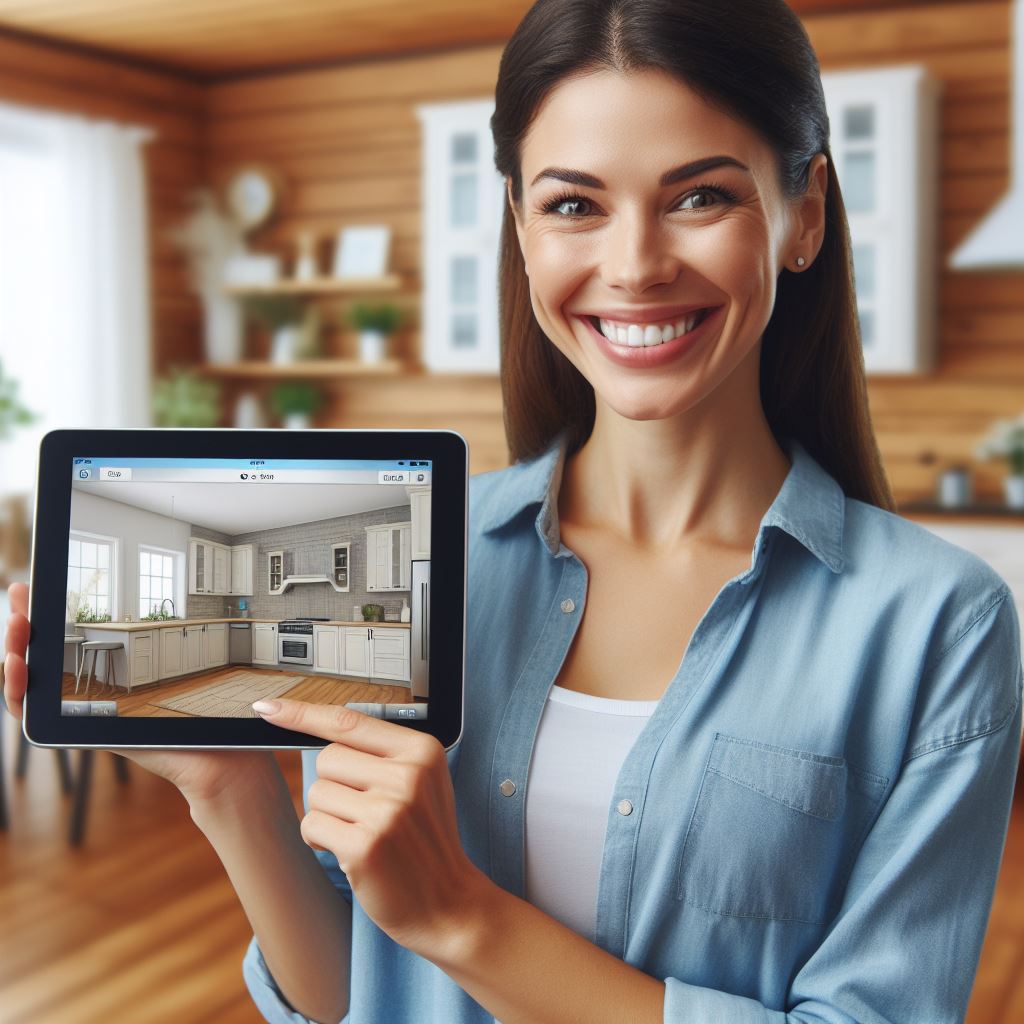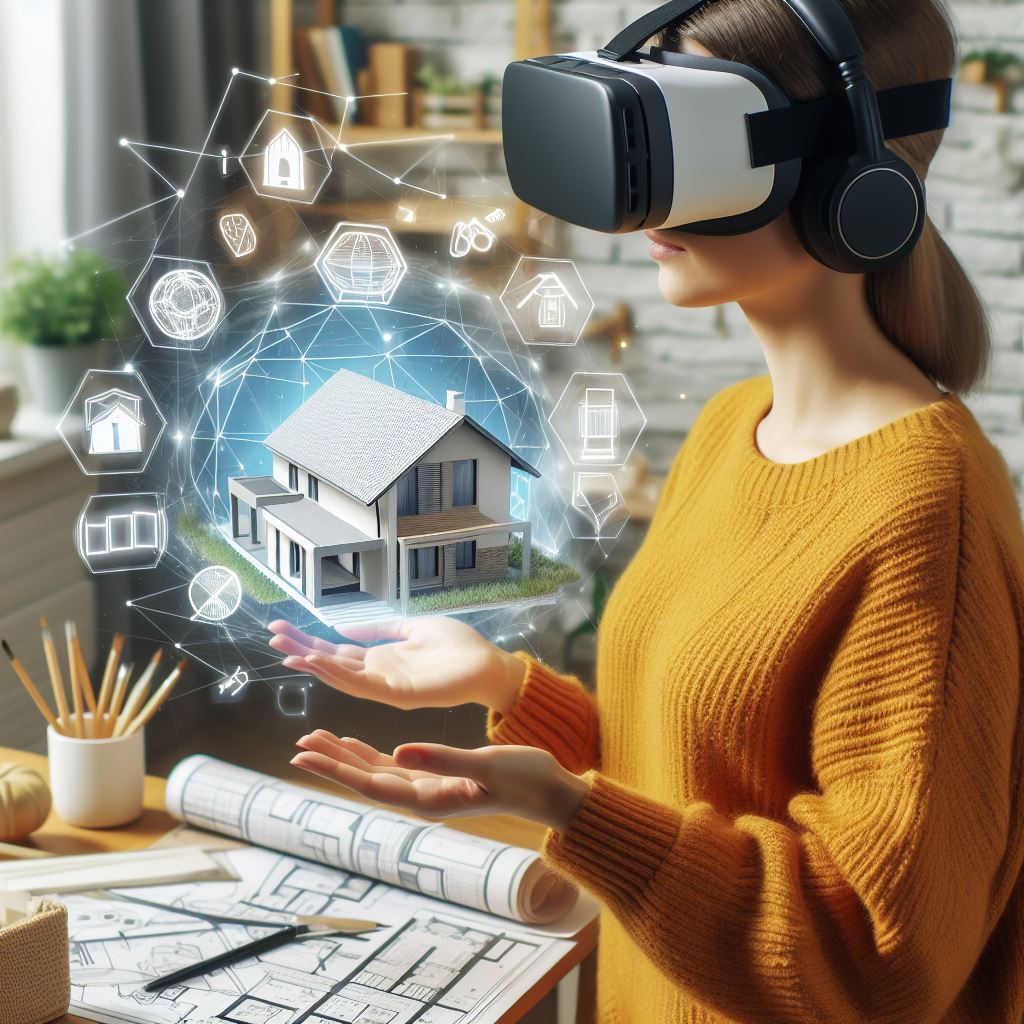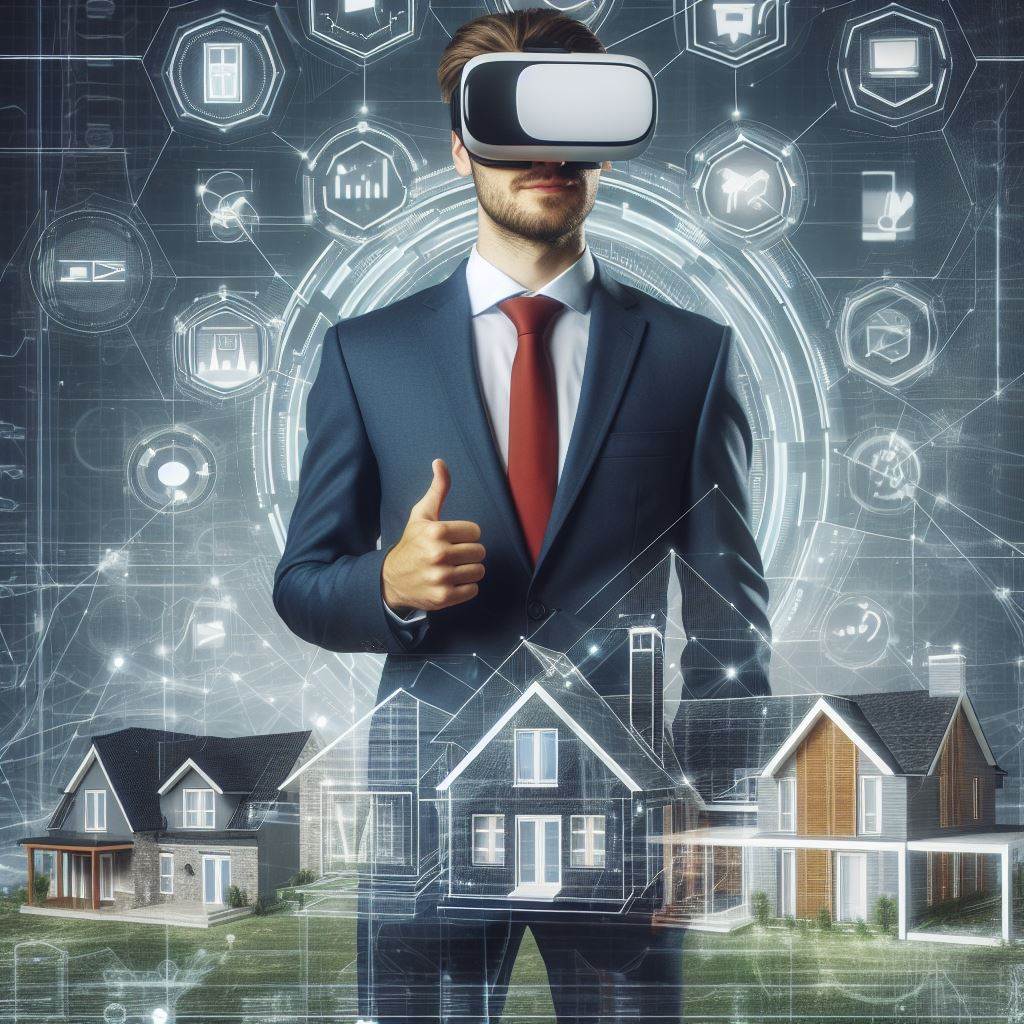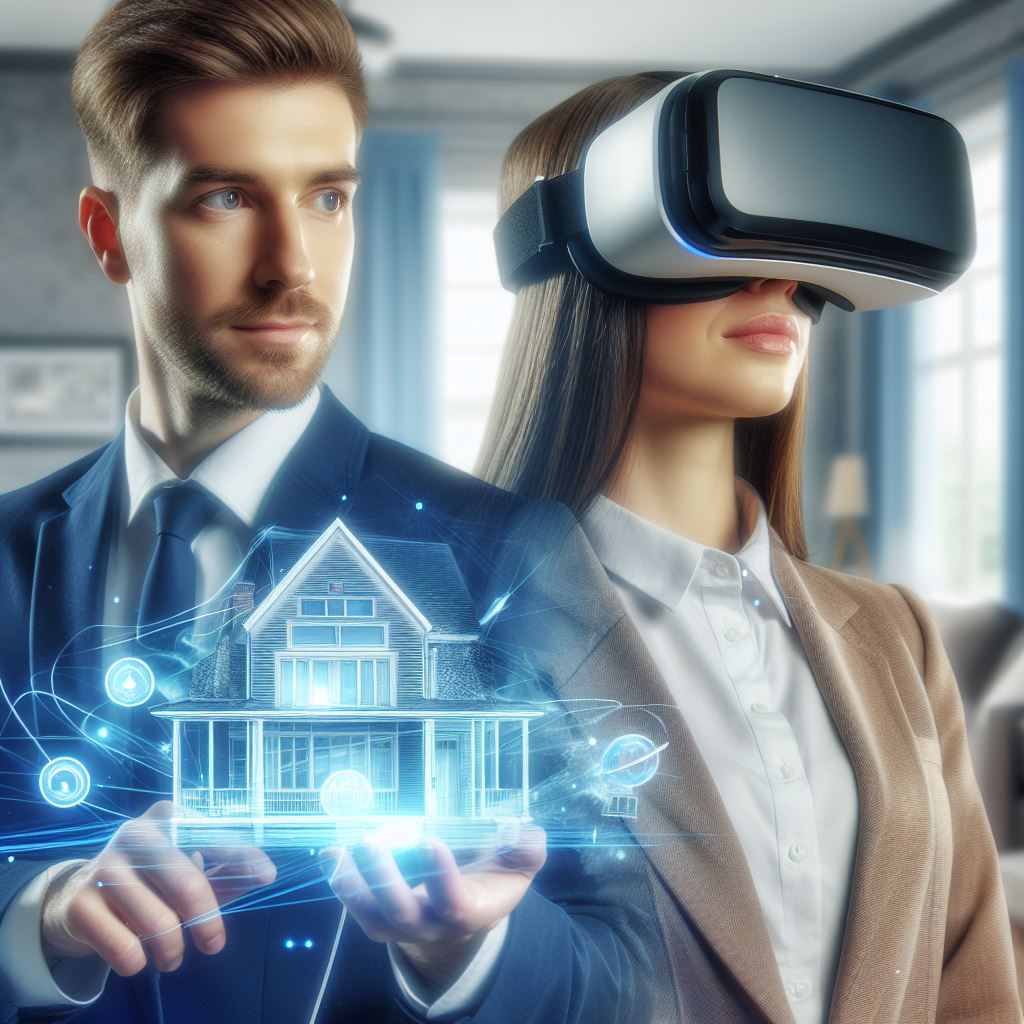Introduction
In recent times, the real estate industry has witnessed an exciting development called virtual open houses.
These innovative events allow potential buyers to explore properties from the comfort of their own homes.
Virtual open houses are online tours of properties that mimic the experience of an in-person open house.
These virtual events utilize technology to showcase the key features and highlights of a property in a visually engaging manner.
With advancements in virtual reality and online platforms, real estate agents and sellers are embracing virtual open houses as an effective marketing tool.
They provide an immersive experience for potential buyers, attracting a wider audience and increasing the chances of a sale.
Amid the global pandemic, virtual open houses are of paramount importance.
Traditional open houses have become risky due to social distancing guidelines and health concerns.
Virtual open houses offer a safe alternative while still enabling buyers to explore properties extensively.
As the pandemic continues to reshape industries, virtual open houses have emerged as an essential solution for real estate professionals.
They not only bridge the gap between buyers and sellers but also ensure the safety and convenience of everyone involved.
This new era of virtual open houses is revolutionizing the way properties are showcased and sold in the real estate industry.
Benefits of Virtual Open Houses
In today’s technologically advanced world, virtual open houses have emerged as a game-changer in the real estate industry, offering numerous benefits for both buyers and sellers.
By leveraging digital platforms, real estate agents can reach a wider audience and maximize their efficiency while minimizing costs.
Convenience for Buyers and Sellers
Virtual open houses provide unparalleled convenience for both buyers and sellers.
Instead of physically attending an open house, buyers can explore properties from the comfort of their own homes.
They can walk through virtual tours, view high-quality images, and even interact with real estate agents via live chat.
On the other hand, sellers can showcase their properties to potential buyers without the need for physical visits.
This not only saves time but also ensures that only genuinely interested buyers visit in person, increasing the chances of a successful sale.
Ability to Reach a Wider Audience
Virtual open houses have revolutionized the way real estate agents market and sell properties.
By eliminating geographical constraints, these digital platforms enable agents to showcase properties to a global audience.
Buyers from any corner of the world can engage in the home-buying process without having to travel, significantly expanding the pool of potential buyers.
Moreover, virtual open houses can be accessed at any time, making properties available to individuals with busy schedules or those living in different time zones.
This accessibility ensures that no potential buyer is left out, maximizing the chances of a quick and successful sale.
Cost-Effectiveness for Real Estate Agents
For real estate agents, conducting virtual open houses is a cost-effective approach compared to traditional in-person open houses.
By utilizing digital tools, agents eliminate expenses associated with staging the property, printing marketing materials, and arranging refreshments.
Additionally, agents can save on travel costs as they can seamlessly showcase multiple properties from a single location.
Furthermore, virtual open houses allow agents to gather valuable data on visitor engagement and interest.
They can track the number of views, time spent on each property, and even receive feedback through the interactive features provided by the virtual platforms.
This data-driven approach enables agents to tailor their marketing strategies and effectively cater to the buyers’ preferences.
Better Scheduling and Time Management
Traditional open houses often face scheduling conflicts and time constraints, making it challenging for both buyers and sellers to find a suitable time to visit properties.
However, virtual open houses offer a flexible solution to this problem.
Buyers can browse through multiple properties within a shorter timeframe, allowing them to make informed decisions quickly.
Additionally, sellers can schedule virtual tours at their convenience, ensuring that they can showcase the property effectively.
This flexibility enables both parties to save time and streamline their property buying or selling process.
In fact, virtual open houses have transformed the real estate industry by providing unmatched convenience, expanding outreach, reducing costs, and optimizing scheduling.
With these numerous benefits, it is no wonder that virtual open houses have become the new era of property showcasing and sales.
As technology continues to advance, the real estate industry will undoubtedly witness further innovation in this realm.
Read: AR for Accurate Property Blueprints
How Virtual Open Houses Work
Utilization of video conferencing platforms
Virtual open houses have become a new trend in the real estate industry, allowing buyers to tour properties from the comfort of their own homes.
These virtual tours are made possible through the utilization of video conferencing platforms.
Real estate agents and sellers are now turning to platforms such as Zoom or Microsoft Teams to conduct virtual open houses.
These platforms enable them to interact with potential buyers in real-time, replicating the experience of an in-person open house.
Preparing the space for virtual tours
Before hosting a virtual open house, it is essential to prepare the space for virtual tours.
This involves decluttering the property, ensuring it is well-lit, organizing furniture, and removing any personal items that may distract viewers.
The goal is to make the property as visually appealing as possible through the camera.
Virtual staging and presentation techniques
In addition to the physical space, virtual staging and presentation techniques play a crucial role in attracting buyers.
Real estate agents can digitally furnish and decorate the property to help potential buyers envision its full potential.
By using virtual staging, agents can showcase different design options and help buyers see the possibilities in the space.
Engaging with potential buyers during the virtual open house
Engaging with potential buyers during a virtual open house is just as important as in-person interactions.
Real estate agents must actively engage with attendees, answering questions, providing additional information, and addressing any concerns.
This can be done through the video conferencing platform’s chat or Q&A feature.
When conducting a virtual open house, it is essential to promote the event through various digital marketing channels.
Utilizing social media platforms, email marketing, and listing websites can help attract a larger audience.
Virtual open houses also offer the advantage of reaching out to potential buyers located in different regions or even countries.
To make the virtual open house experience more interactive and immersive, real estate agents can incorporate virtual reality technology.
Virtual reality tours allow buyers to navigate through the property as if they were physically present.
This technology adds an extra layer of excitement and engagement to the virtual open house.
Another advantage of virtual open houses is the ability to provide recordings or on-demand tours for potential buyers who may have missed the live event.
These recordings can be later shared with interested parties, allowing them to view the property at their convenience.
This flexibility is particularly beneficial for individuals with busy schedules or those located in different time zones.
Virtual open houses also offer a cost-effective solution for both sellers and buyers.
Sellers can save on staging costs, while buyers can save time and money on traveling to multiple properties.
It streamlines the house-hunting process and allows buyers to narrow down their options more efficiently.
In short, virtual open houses have revolutionized the real estate industry, offering a new era of convenience and accessibility.
Utilizing video conferencing platforms, preparing the space for virtual tours, utilizing virtual staging techniques, and engaging with potential buyers are key elements in creating a successful virtual open house.
With the advancement of technology, virtual open houses are here to stay and will likely become a standard practice in the real estate industry.
Read: Revolutionizing Design with VR Tech

Successful Examples of Virtual Open Houses
Virtual open houses have become increasingly popular in the real estate industry, and for good reason.
Here are some successful examples:
Case Studies Showcasing the Effectiveness of Virtual Open Houses
- One case study conducted by a major real estate agency found that virtual open houses resulted in a 25% increase in leads compared to traditional open houses.
- Another case study showed that virtual open houses attracted buyers from a wider geographic area, leading to a higher chance of selling the property quickly.
- A luxury home in a prestigious neighborhood recently had a virtual open house that generated multiple offers within 48 hours, ultimately resulting in a successful sale above the asking price.
Positive Feedback from Buyers and Sellers
Buyers and sellers alike have expressed their satisfaction with virtual open houses:
- Buyers appreciate the convenience of being able to tour multiple properties from the comfort of their own homes, saving time and money on travel.
- Sellers have reported that virtual open houses attract more serious and motivated buyers who are genuinely interested in the property.
- Both buyers and sellers have found virtual open houses to be a safer alternative, especially during times of social distancing.
Increased Number of Offers and Sales Compared to Traditional Open Houses
One of the most significant advantages of virtual open houses is the increased number of offers and sales:
- A real estate agent reported receiving 10 offers on a property after conducting a virtual open house, compared to only 5 offers from a traditional open house.
- Multiple agents have experienced higher sales volume after adopting virtual open houses as a regular practice.
- Virtual open houses have proven to be an effective tool for generating competition among buyers and driving up sale prices.
In a nutshell, virtual open houses have proven to be highly effective in the real estate industry.
Not only do they attract more leads and interested buyers, but they also provide a convenient and safe way to showcase properties.
The success of virtual open houses is evident through various case studies and positive feedback from both buyers and sellers.
With the increased number of offers and sales compared to traditional open houses, it’s clear that virtual open houses are here to stay and will continue to shape the future of real estate.
Read: Virtual Staging: Selling Homes Faster
Tips for Hosting Virtual Open Houses
With the rapid advancement in technology, the real estate industry has seen a major transformation in the way open houses are conducted.
Virtual open houses have emerged as an innovative solution that allows potential buyers to explore properties without physically visiting them.
To ensure the success of virtual open houses, here are some tips for hosting a memorable and interactive experience for potential buyers in the digital realm.
Utilizing High-Quality Cameras and Audio Equipment
Investing in high-quality cameras and audio equipment is crucial to the success of a virtual open house.
Ensure that the cameras capture crisp images and the audio is clear and distortion-free.
This enhances the viewing experience and makes potential buyers feel like they are physically present at the property.
Appropriate Lighting and Staging for Virtual Tours
Proper lighting and staging significantly impact the visual appeal of a property during a virtual tour.
Opt for natural light whenever possible and strategically place additional lighting to highlight key features.
Stage the property to create a welcoming and homely atmosphere that resonates with potential buyers.
Effective Communication and Interaction with Potential Buyers
During virtual open houses, it is essential to actively engage with potential buyers.
Respond promptly to their comments and questions, providing accurate and helpful information.
Utilize chat features or live video calls to establish a personal connection and address any concerns they may have.
Promoting Virtual Open Houses Through Online Channels and Social Media
To attract a larger audience to your virtual open house, utilize various online channels and social media platforms.
Create visually appealing posts with enticing descriptions and share them on platforms like Facebook, Instagram, and Twitter.
Collaborate with local influencers or real estate agents with a significant online following to expand your reach.
In essence, virtual open houses represent a new era in the real estate industry.
By implementing these tips, you can create a memorable and interactive experience for potential buyers, ultimately leading to increased interest and successful property sales.
Read: AR in Real Estate: A Game Changer
Challenges and Limitations of Virtual Open Houses
As the real estate industry embraces the digital age, Virtual Open Houses have emerged as a game-changer.
While they offer convenience and accessibility, there are inherent challenges and limitations that both buyers and sellers must navigate.
Technical Difficulties and Connectivity Issues
One of the primary challenges faced during Virtual Open Houses is the prevalence of technical difficulties.
The reliance on internet connectivity and technology can lead to disruptions, buffering, or even complete failure of the virtual tour.
This poses a significant hurdle for potential buyers who may miss out on essential details about the property.
Inability to Experience the Property in Person
Virtual tours, no matter how advanced, cannot replace the tangible experience of being present in a property.
The absence of sensory engagement, like touch and smell, makes it challenging for buyers to truly assess the ambiance and atmosphere of a home.
This limitation may lead to decisions based on incomplete information.
Lack of Personal Connection and Physical Interaction
In a virtual setting, the personal touch that comes with in-person interactions is notably absent.
Buyers miss the opportunity to engage with sellers, ask spontaneous questions, and gauge the immediate responses that contribute to a more informed decision-making process.
The lack of physical presence also hinders the ability to visualize the scale and proportions of the space.
Potential Security and Privacy Concerns
The convenience of Virtual Open Houses introduces a potential downside – security and privacy concerns.
The virtual nature of these tours raises questions about the security of personal information and the risk of unauthorized access.
Sellers may worry about the potential misuse of the virtual tour or the recording of sensitive details about their property.
Basically, while Virtual Open Houses open new doors for the real estate industry, acknowledging and addressing these challenges is crucial.
Striking a balance between technological advancements and preserving the fundamental aspects of property exploration will be key in ensuring the success of this new era in real estate.
As the industry continues to evolve, finding innovative solutions to overcome these limitations will be paramount for a seamless virtual experience.
The Future of Virtual Open Houses
In the ever-evolving landscape of the real estate industry, Virtual Open Houses have emerged as a transformative force, ushering in a new era of property exploration.
The convenience and accessibility they offer have propelled their continuing popularity and adoption across the industry.
Continuing popularity and adoption in the real estate industry
The shift towards virtual platforms was accelerated by global circumstances, but it is far from a temporary trend.
Virtual Open Houses have become an integral part of the real estate toolkit, providing a dynamic and immersive experience for prospective buyers.
As the virtual realm becomes more sophisticated, the traditional concept of an open house is undergoing a radical transformation.
Integration of advanced technologies like virtual reality
One of the key drivers behind the success of Virtual Open Houses is the integration of advanced technologies, notably virtual reality (VR).
This cutting-edge technology allows potential buyers to virtually walk through properties from the comfort of their homes.
The ability to explore every nook and cranny in a virtual space provides a level of engagement and detail that was previously unimaginable.
Potential changes in real estate practices and norms
The real estate industry is on the brink of a paradigm shift, with Virtual Open Houses potentially altering long-standing practices and norms.
The traditional weekend ritual of driving from one property to another is being replaced by the ease of navigating a virtual space with just a few clicks.
This not only saves time but also widens the scope for potential buyers, enabling them to explore properties beyond geographical constraints.
Moreover, the use of VR in real estate is fostering a more informed decision-making process.
Buyers can scrutinize every aspect of a property, leading to more qualified leads and reducing the need for physical visits.
This not only benefits the buyers but also streamlines the selling process for real estate professionals.
As we step into this new era of real estate, it is evident that Virtual Open Houses are here to stay.
The fusion of technology and property exploration is reshaping the industry, promising a future where the boundaries between the physical and virtual worlds blur, creating a more efficient and immersive home-buying experience.
Conclusion
In the ever-evolving landscape of real estate, the advent of virtual open houses has marked a transformative shift.
As we conclude our exploration of this innovative approach, it becomes evident that virtual open houses are not just a passing trend but herald a new era in the industry.
The benefits of virtual open houses are abundant.
From the convenience of touring a property from the comfort of one’s home to the global reach that transcends geographical boundaries, these digital showcases offer unparalleled advantages.
Prospective buyers can immerse themselves in a virtual walkthrough, examining every nook and cranny without the constraints of time and distance.
However, it’s crucial to acknowledge the challenges that accompany this paradigm shift.
Technical glitches and the need for a seamless online experience pose hurdles.
Real estate professionals must adapt to the virtual realm, honing their digital skills to navigate this uncharted territory successfully.
In recent years, the real estate market has witnessed a growing reliance on virtual open houses.
The global accessibility afforded by these digital platforms has expanded the pool of potential buyers, injecting dynamism into a traditionally localized industry.
Realtors who embrace this trend find themselves at a distinct advantage, tapping into a broader market and accelerating the sales process.
The role of virtual open houses goes beyond mere convenience; they have become a cornerstone of the home-buying experience.
The immersive nature of these tours fosters a connection between the buyer and the property, transcending the limitations of physical showings.
As we navigate the ever-shifting landscape of the real estate market, virtual open houses emerge as the catalyst for change.
They represent more than a technological innovation; they signify a fundamental shift in how we approach buying and selling homes.
The convenience, accessibility, and global reach offered by virtual open houses underscore their growing importance in the industry.
In the end, virtual open houses are not merely a response to the challenges of our times; they are architects of a new era in real estate.
As industry professionals and prospective homeowners alike embrace this transformative tool, the virtual open house stands as a testament to the industry’s adaptability and resilience in the face of change.
Welcome to the future – where the doors to your dream home are just a click away.




